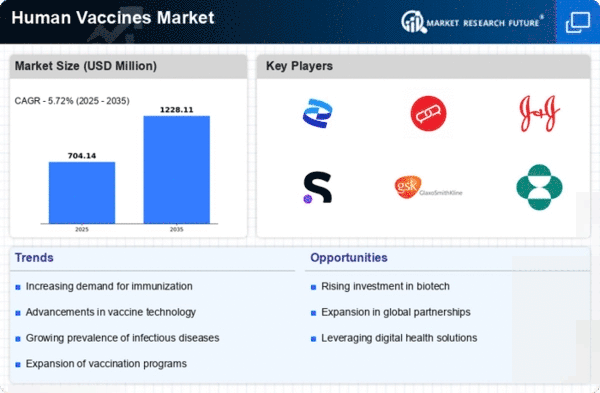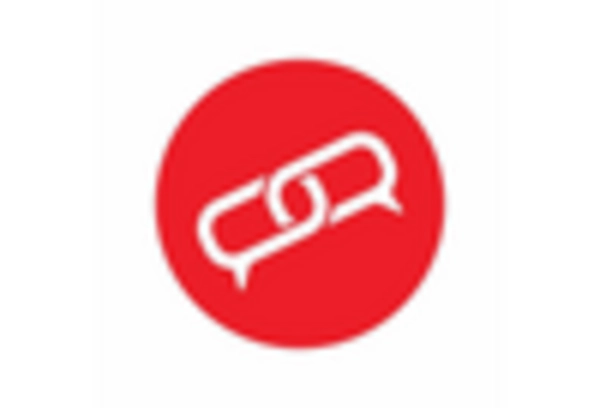Market Share
Human Vaccines Market Share Analysis
Companies operating in the competitive climate of human vaccines market position themselves strategically by diversifying their vaccine-based portfolio to cover a wide range of diseases. Through the production of vaccines that target several infectious illnesses, businesses increase their market portfolios and meet changing healthcare demands. This approach not only creates a broad product range but also brands companies as leaders in the fight against several preventable diseases. Companies strive to increase market share by exploring the emerging markets and enhancing vaccine availability. Strategic initiatives are therefore undertaken to ensure that underserved populations in developing regions benefit from global vaccination delivery. In this way, companies help address the public health problems and improve their market share because they meet unmet needs in different demographics while broadening the markets. Companies assess their positioning in the ever-changing atmosphere of vaccine development through investments into some groundbreaking technologies. This includes innovations in vaccine platforms like mRNA, vector-basin as well recombinant technologies. Through leading the way in technology innovation, companies distinguish themselves from their rivals and gain first-mover advantage with regard to prevailing market positioning for being a developer of innovative and performing vaccine solutions. How the market share is positioned in the human vaccines sector greatly depends on strategic collaborations and alliances. Collaboration between pharmaceutical firms, research institutions and international organizations leads to sharing of specialization, resources and speeding up vaccine production. By ensuring such collaborations, the capabilities of companies are advanced; their reach is boosted and they become crucial stakeholders in global mass immunization drives. Safety and efficacy issues form the basis of market share positioning strategy. Companies make investments in intense research and clinical trials to validate the efficacy and safety profiles of their vaccines. The emphasis on transparency and compliance with regulatory standards creates trust among healthcare professionals and the population, which results in an increase of market acceptance as well favourable positioning. Early market penetration in high demand markets is a strategic act to gain enough shares of the market. Competitive advantage is enjoyed by companies that react in anticipation to identify an upcoming health threat or market need and swiftly launch vaccines. This early entry does not only address urgent healthcare needs fast but also creates a first-mover advantage in markets where there is high demand for countermeasures. Flexibility in manufacturing processes and a robust supply chain are key for market share positioning in the human vaccines market.


















Leave a Comment